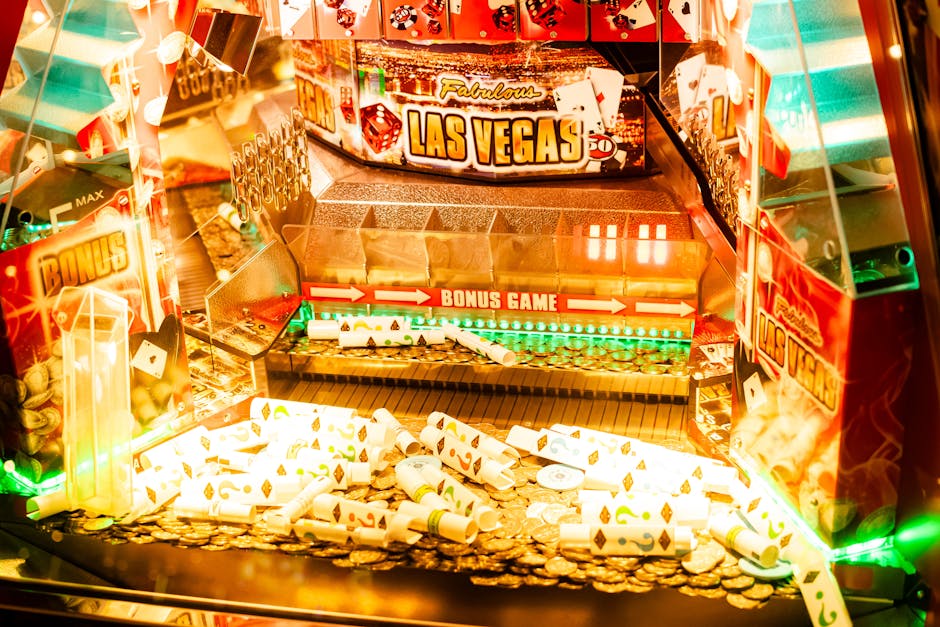Intro: Why Casino Gaming Still Pulls in Millions
At its core, casino gaming taps into something primal—uncertainty mixed with strategy. It’s the rush of possibility and the quiet belief that maybe, this time, the odds will bend your way. Whether it’s spinning a slot or placing a calculated bet at a poker table, the balance of luck and control is what keeps people coming back.
Once confined to the glossy floors of Las Vegas and Macau, casino gaming has gone fully digital. These days, you don’t need a flight or even a collared shirt—you just need a phone and a few spare minutes. Apps and platforms bring every flavor of gaming to your pocket, 24/7. This ease of access has pulled in new players worldwide, from curious first-timers to strategy junkies.
But with convenience comes confusion—especially for beginners. Most walk in thinking a win is right around the corner or that the house edge is just some background detail. They underestimate the importance of pacing, bankroll management, and emotional control. In truth, it’s not just about playing; it’s about knowing where and how to start smart.
Know Your Game Types: A Quick Breakdown
Slots: The Gateway Game—Luck, Reels, and Simplicity
Slots are the starting line for many casino newcomers, and for good reason. There’s no learning curve—just spin the reels and hope for matched symbols. It’s pure chance, no strategy required. Bonus rounds, free spins, and flashy visuals add to the appeal. But don’t let the simplicity fool you—most slots have a higher house edge, so wins aren’t guaranteed, no matter how lucky you feel.
Table Games: Where Skill Meets Risk
Think blackjack, roulette, baccarat. These games are where basic strategy and good decision-making can actually stretch your bankroll. Blackjack especially has one of the lowest house edges—if you know how to play it right. Roulette? That’s more a game of odds and wagers than logic. Baccarat? It’s quick, easy to follow, and random enough to keep things exciting. If you’re going to dip into table games, learn the rules first. They’re fun—until they’re not.
Poker: Strategy-Heavy, Community-Driven
Poker isn’t just a game—it’s a culture. Unlike other casino games, you’re playing against other people, not the house. Skill, patience, reading opponents—it all matters. Texas Hold’em is the most popular variant, but there are plenty of others. It takes time to get decent and even longer to be good. But that’s the draw: if you’re into psychological play and long-game strategy, poker is your space.
Live Dealer Games: The In-Between Zone
Live dealer games bridge the gap between brick-and-mortar casinos and totally digital play. Powered by real-time video feeds, these games offer a casino-floor feel from your laptop or phone. Blackjack, roulette, and baccarat are the mainstays. You can see the dealer, chat if you want, and feel a sense of presence without the travel. It’s a slower pace than video games, which can be a plus if you like a bit more breathing room between decisions.
House Edge 101: How Casinos Make Money
Before you place your first bet, know this: every game in a casino is designed with one thing in mind — the house always gets paid. That edge, built into the rules of each game, is how casinos stay profitable. Your job as a player is to understand where you stand and choose wisely.
Start with the basics. Odds are the raw probability of outcomes in a game. RTP, or Return to Player, is a percentage that tells you how much a game pays back over time. If a slot machine has a 96% RTP, that means it keeps 4% — the house edge. The higher the RTP, the better it is for you. Just don’t expect those returns every session. It’s a long game.
Not all games treat you equally. Blackjack, when played with basic strategy, comes with one of the lowest house edges — often under 1%. Video poker (certain versions) and baccarat are also player-friendly. On the flip side, keno and certain slot machines can have house edges soaring over 10%.
If you’re just starting out, don’t get dazzled by flashy lights or big jackpots. Focus on games that give you decent odds and leave you some control. Understanding what you’re up against doesn’t kill the fun — it gives you a fighting chance.
Start Smart, Not Fast
The biggest mistake beginners make: diving in without a plan. Before you load up a site or stroll into a casino, set your budget—and stick to it. This isn’t just about avoiding big losses. It’s about creating boundaries so you stay in control. Decide what you’re willing to lose. That’s your limit, not a starting point.
Winning feels great. Losing stings. But neither should push you into chasing the other. If you’re up, walk away with the win. If you’re down, resist the pull to “make it back.” Chasing losses is the express lane to burnout. Play long enough and the ups and downs will even out—unless you let them mess with your judgment.
Finally, your body and brain need breaks too. Set time-outs, both physical and mental. Grab some air, switch games, or step away entirely. Casino environments—digital or real—are built to keep you locked in. You have to be the one who pauses the cycle. The more you treat gaming like a marathon, not a sprint, the better your experience will be.
Online vs. Physical Casinos: What Beginners Should Consider
Choosing between online and physical casinos depends on what you’re looking for in a gaming experience. Each option offers distinct advantages—and some important caveats.
Why Online Wins on Convenience
Online platforms have made casino gaming more accessible than ever. Whether you’re playing from a laptop or a smartphone, ease of access is a major draw.
Key advantages of online casinos:
- 24/7 access from any location with internet
- Faster gameplay—no waiting between hands or spins
- Attractive promotions like bonuses, free spins, and loyalty rewards
These benefits make online a great starting point for beginners wanting to explore games at their own pace.
The Value of the Offline Casino Experience
While online games deliver speed and convenience, physical casinos offer something digital platforms can’t fully replicate: atmosphere.
Perks of physical casinos include:
- A lively, immersive environment with real-time social interaction
- Opportunities to learn by observing other players
- Full experience of non-gaming amenities: dining, shows, events
For some, sitting at a table with real chips and cards is an essential part of the draw. Offline casinos also offer direct interactions with dealers and other players, adding depth to the gameplay.
What to Look for in Online Casino Platforms
If you’re choosing to start online, not all platforms are created equal. Security, transparency, and licensing should be your top priorities.
Beginner-friendly online casino tips:
- Ensure proper licensing (look for regulators like the UKGC, MGA, etc.)
- Read privacy and payout policies carefully
- Avoid casinos with unclear or manipulative bonus terms
Finding a trustworthy platform protects your money and your personal information—especially important when real cash is involved.
Explore trusted beginner-friendly platforms: GambleHubZone
Avoiding Common Pitfalls
There’s a reason seasoned players talk about bankroll management like it’s gospel—it is. A hot streak can feel invincible, but it’s usually just variance in disguise. Set a fixed budget before you start, break it down into smaller sessions, and never bet money you’re not okay losing. Gambling isn’t a shortcut to income; it’s entertainment with odds attached.
Predatory bonuses are another trap. That shiny $500 match? Read the fine print. Most come with steep wagering requirements, meaning you might have to play through your deposit 30 times before you can withdraw anything real. If it sounds too good to be true, it probably is.
Most important: know when to tap out. Set time limits, loss caps, and even win ceilings. Quitting while you’re ahead isn’t about superstition—it’s strategy. And stepping away after a loss? That’s discipline. Casinos (and apps) are built to keep you engaged. The smartest play you can make is knowing when not to play.
Learning Resources That Actually Help
You don’t need to risk real cash to start learning the ropes. Nearly every online casino offers free game trials or demo modes that let you practice without spending a cent. Use them. Get a feel for how different games work—especially slots, blackjack, and roulette. It’s the best way to understand mechanics without emotional or financial pressure.
Forums and online communities are another goldmine. From Reddit threads to niche Discord groups, seasoned players share tips, beginner-friendly resources, and reviews of various platforms. Tutorial sites and YouTube channels also break down specific game strategies in plain language. Don’t just stick to one source—cross-check advice and test it for yourself.
But here’s the catch: stay sharp. There’s a lot of hype online—especially from influencers pushing affiliate links or miracle strategies. Be selective. Look for creators or communities that value transparency over flash. Casino gaming can be fun and engaging, but only if you keep learning with a clear head and never let the noise drown out your judgment.
Final Word: Play for Fun, Not for Income
If you’re chasing the idea of getting lucky in a casino, you’re playing the wrong game. The real edge—the one that matters—is mental. A steady mindset beats impulsive risk every time. This isn’t a movie montage where one spin changes your life. In reality, the house always wins in the long run. Smart players know that and show up anyway—for entertainment, not salvation.
Staying in control means knowing when to walk away, no matter how good—or bad—the streak. Don’t let momentum fool you. The odds don’t remember your last hand. If you feel yourself slipping into “just one more round” mode, take a pause. That’s not instinct—it’s the start of a problem.
Know your line. The moment you stop having fun, stop. Gaming should never feel like pressure or punishment. There’s no shame in calling it. The real win is walking away clear-headed, on your terms.
Bonus Tip Section (Short Takes)
Always read the game rules first—even for slots Don’t let the flashing lights fool you. Even the simplest slot machines have quirks: paylines, bonus rounds, multipliers. Skipping the rules is a fast track to wasting your bankroll. Take two minutes and read up before you spin.
Favor games with skill-based elements when starting out If you’re new and want to stretch your budget, aim for games like blackjack or poker. These offer more control and decisions that actually matter. You might not win every hand, but skill gives you a fighting chance.
Loyalty programs exist—use them, don’t abuse them Free perks, cash back, and comps can sweeten the deal if you’re playing anyway. Just don’t let the rewards cloud your judgment. If you’re playing more to hit a tier than to enjoy the game, you’re off track.
Never gamble when angry, tired, or under pressure Casinos—real or digital—are the worst places to process emotions. Fatigue and frustration lead to bad decisions. Step away, reset, come back only when your mind’s clear and your goals are grounded in fun, not escape.




